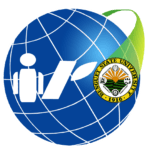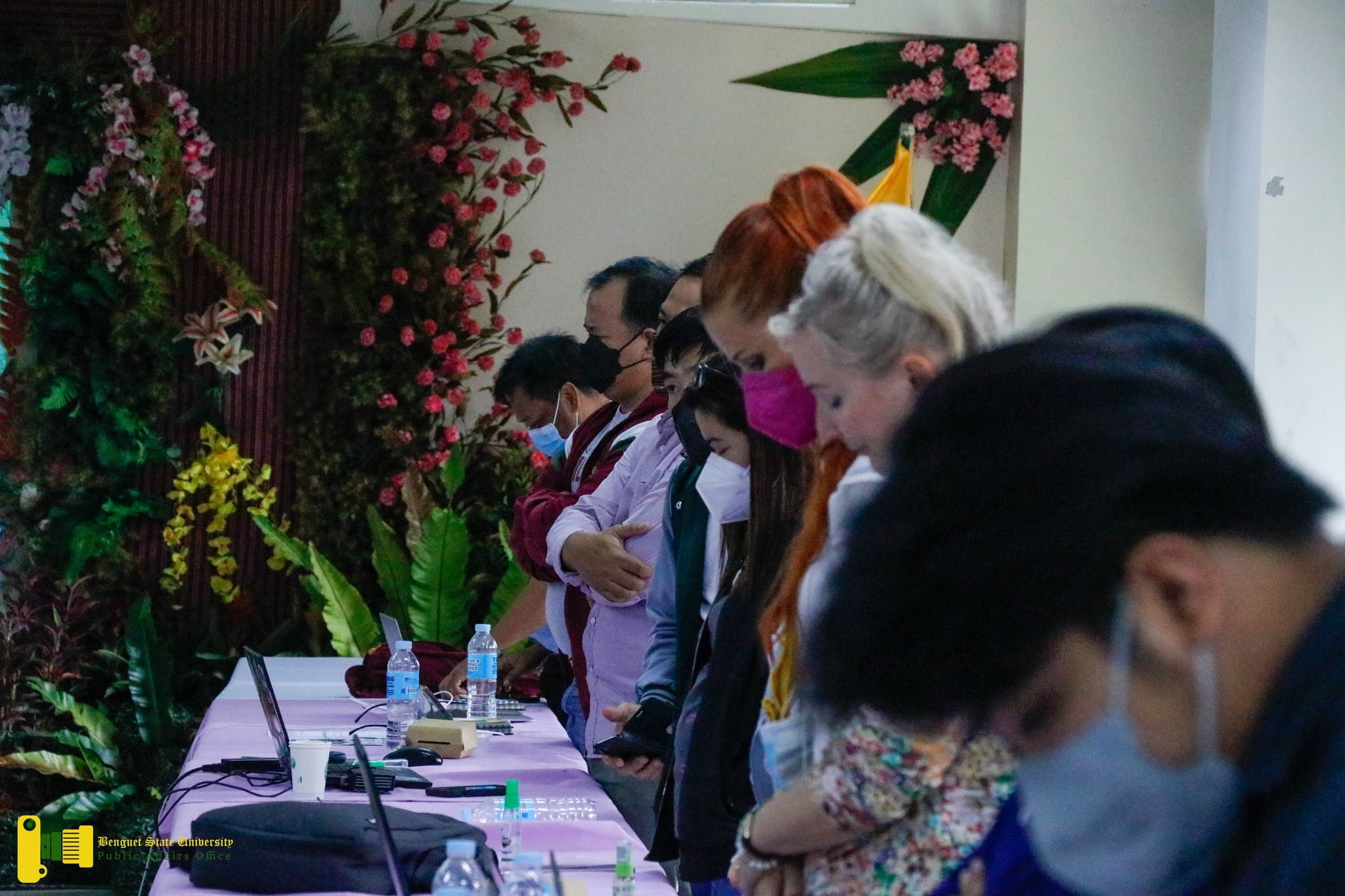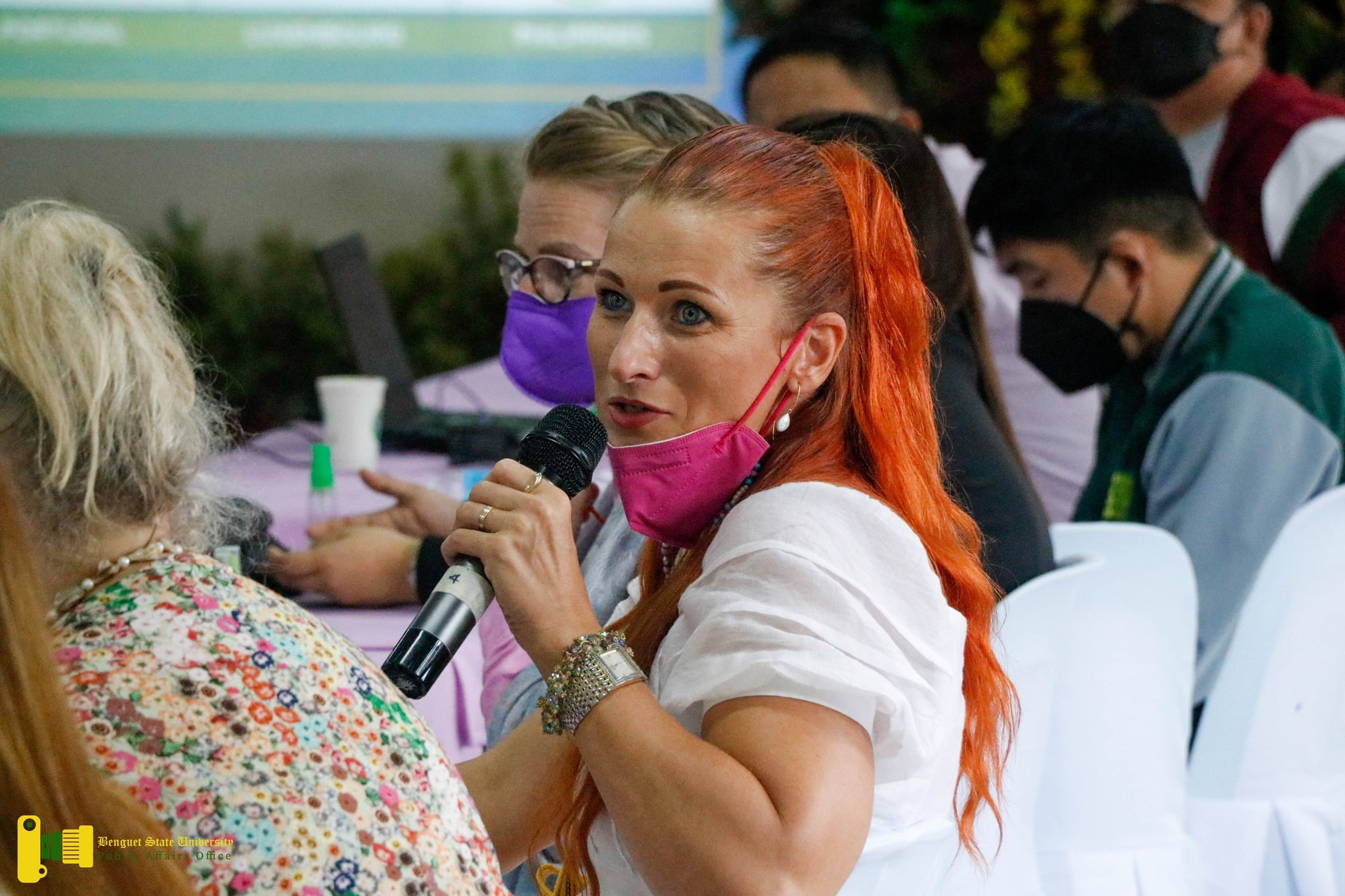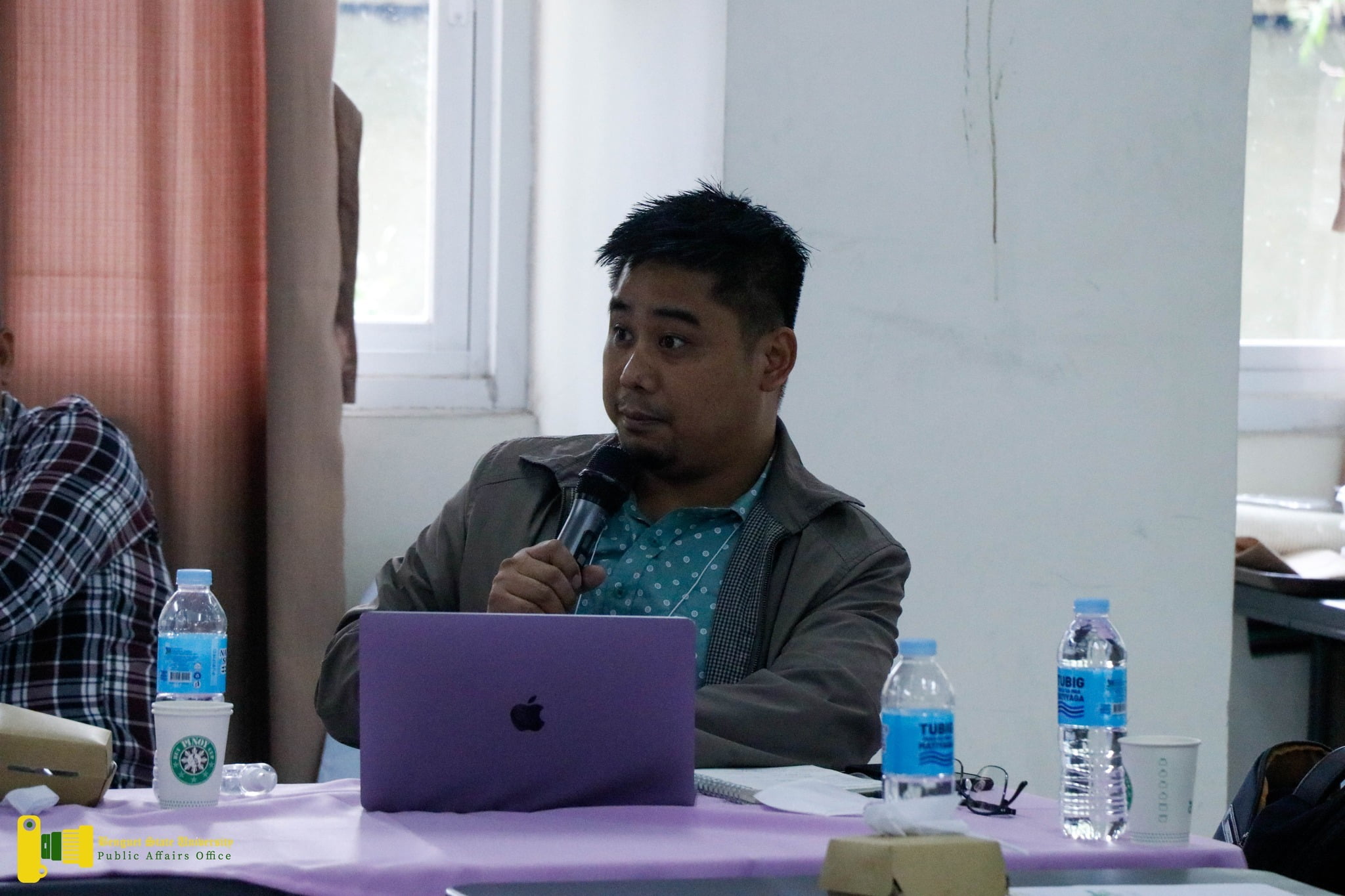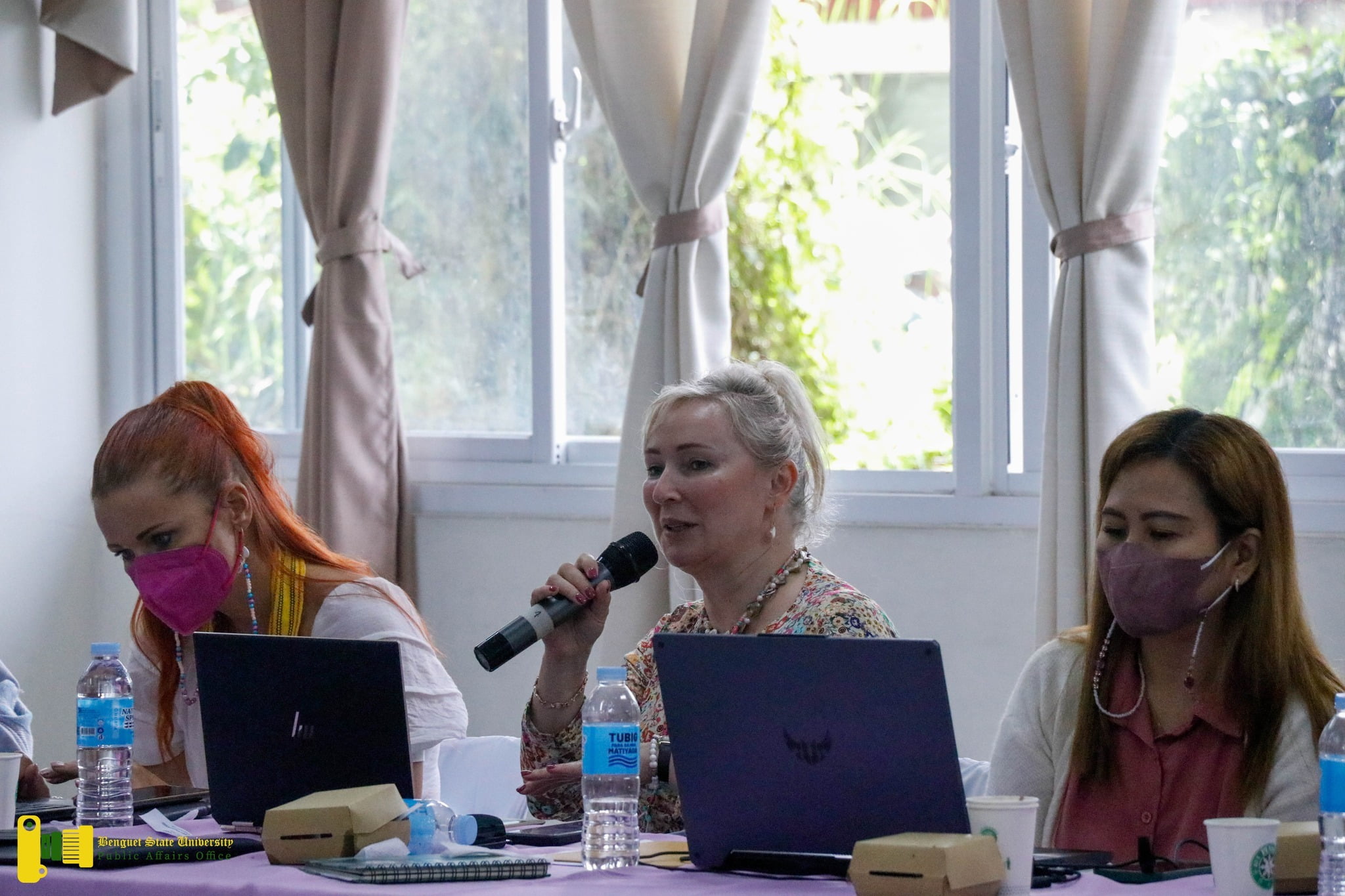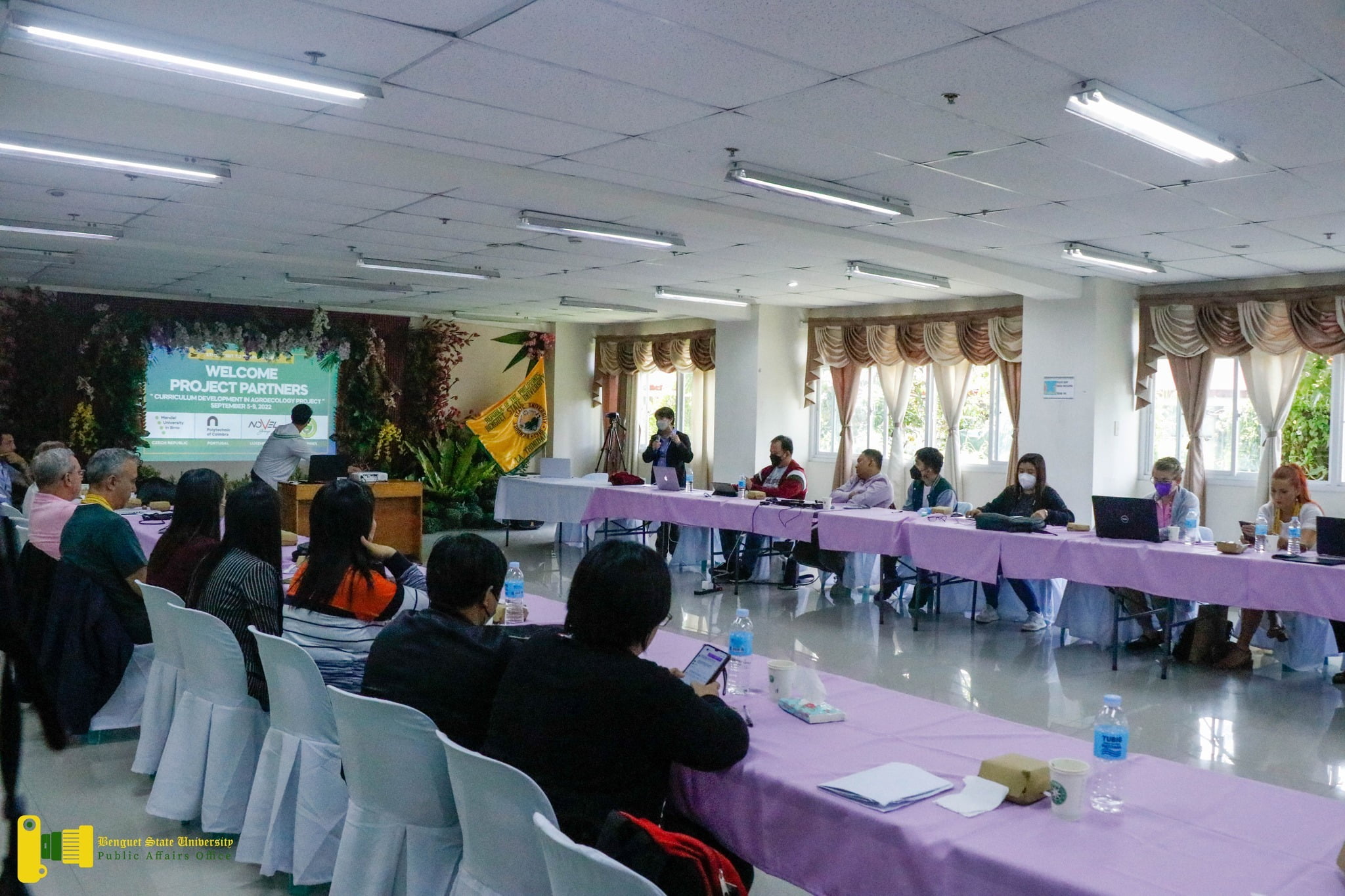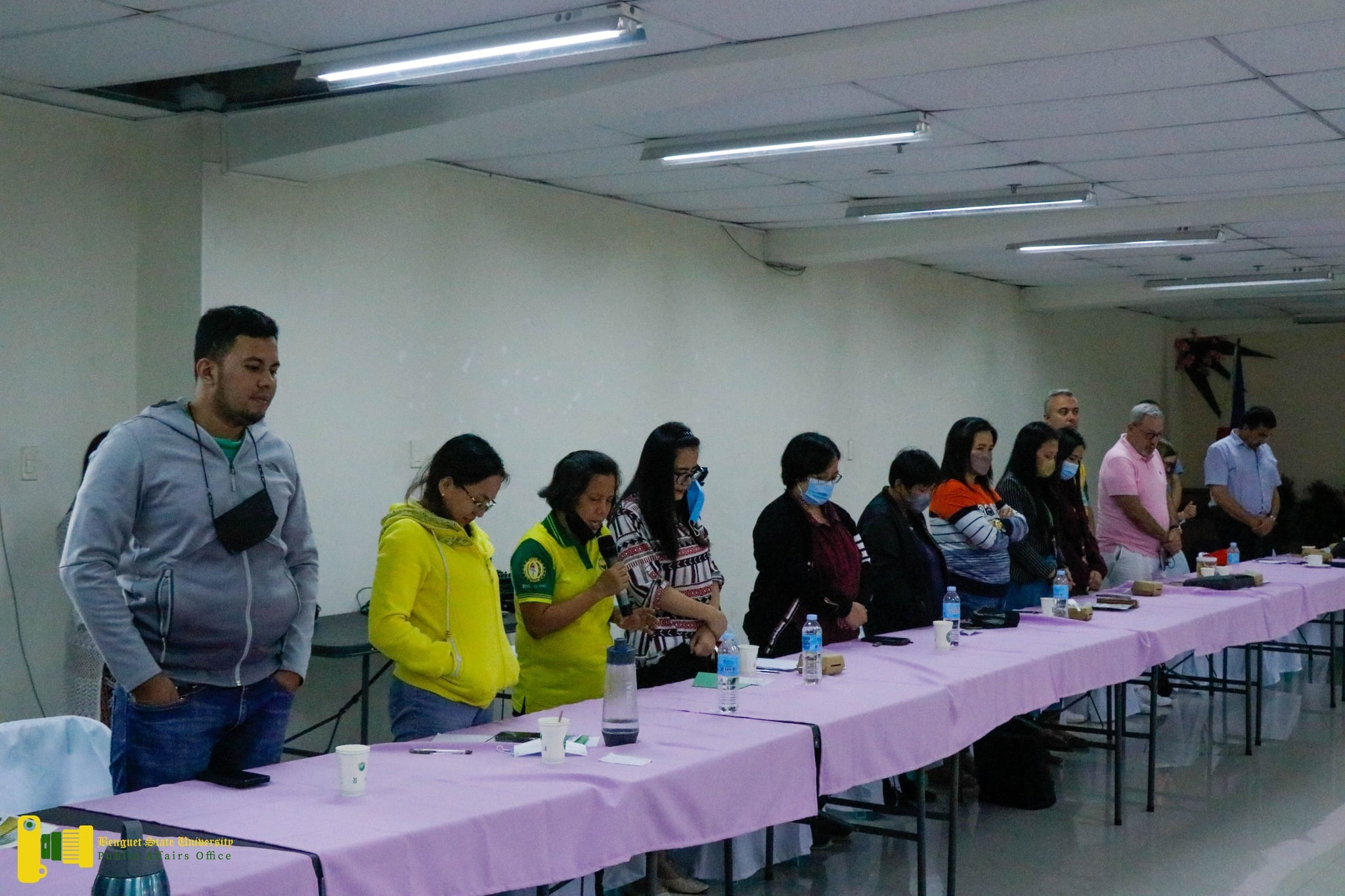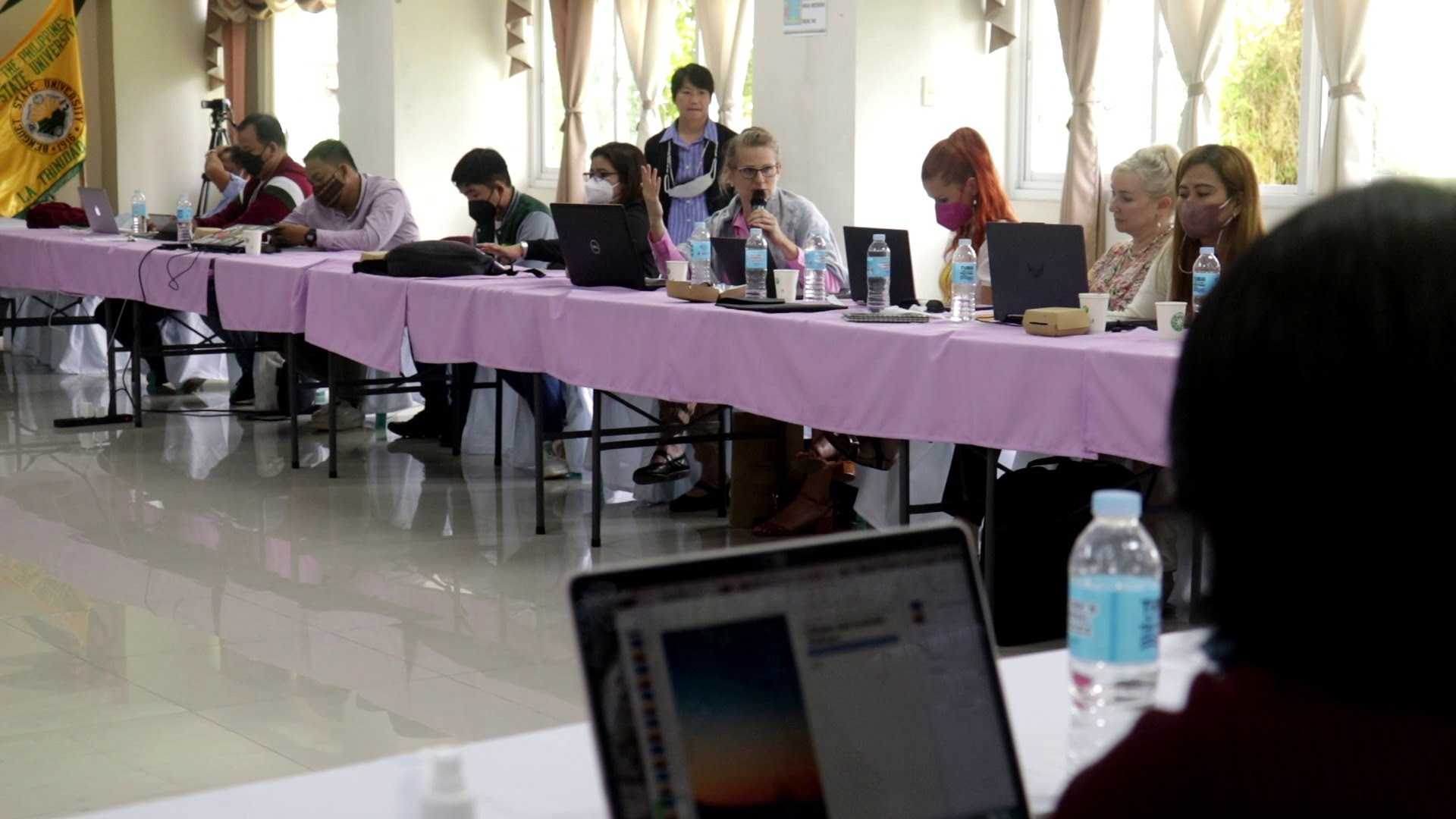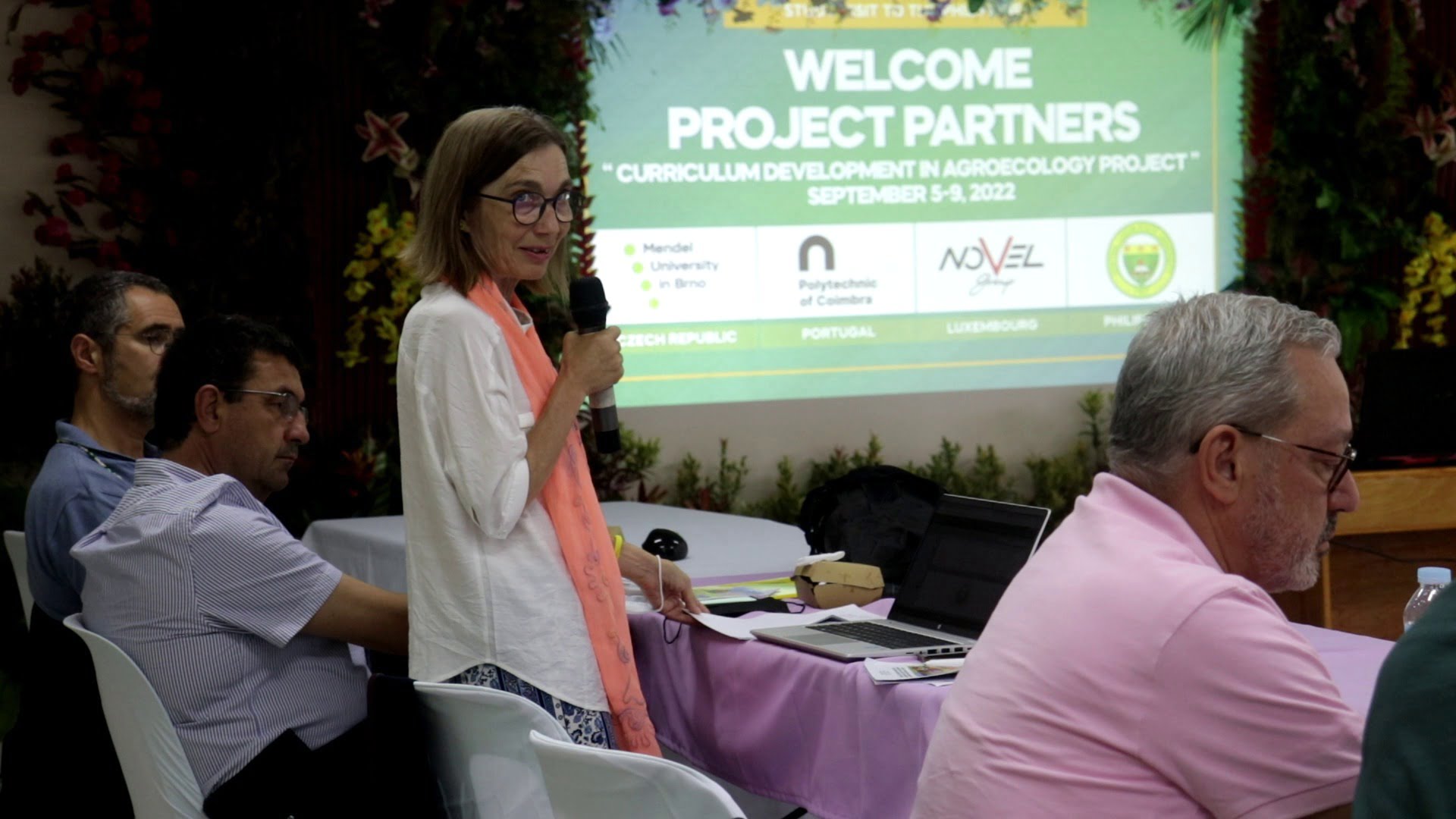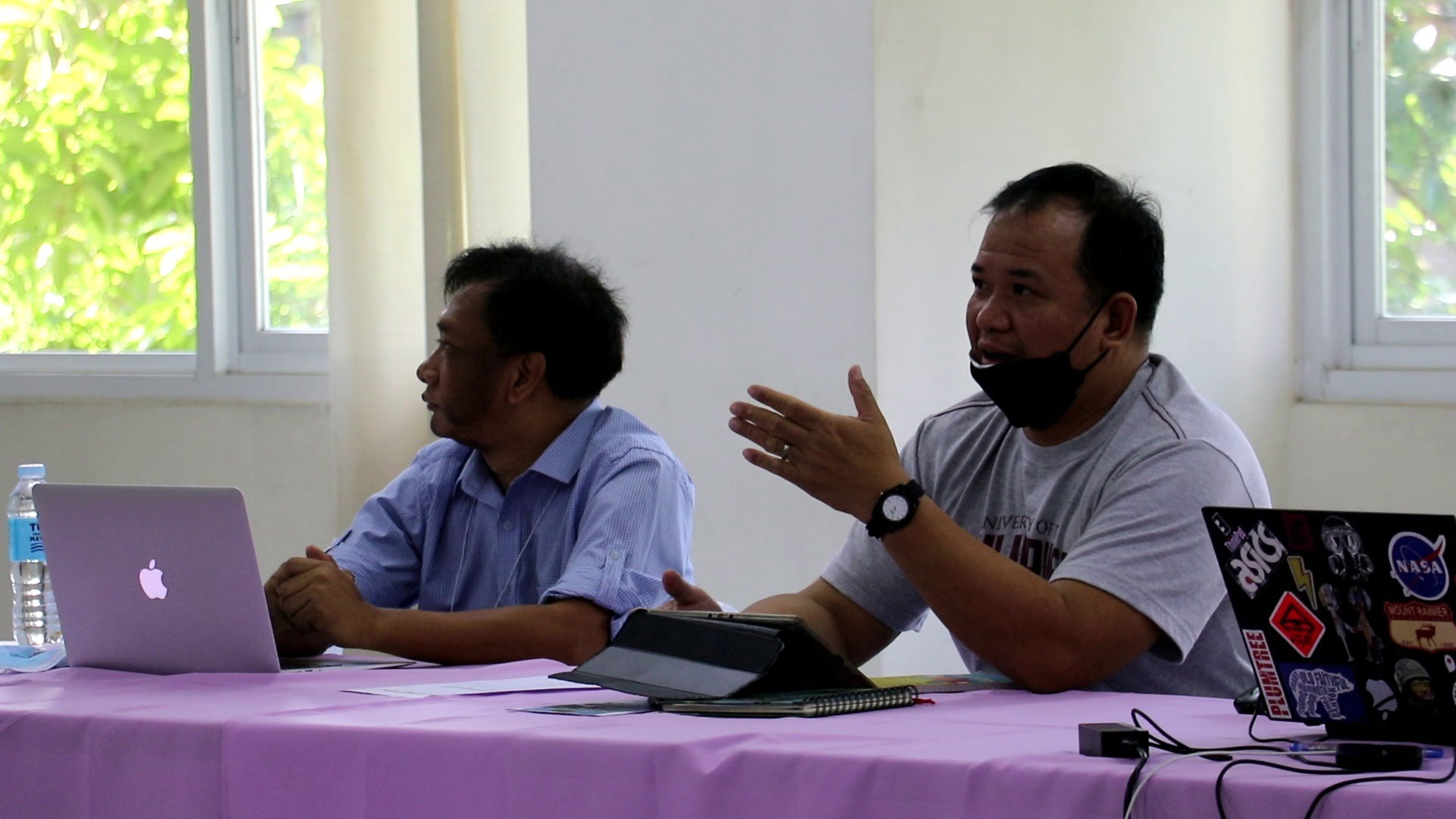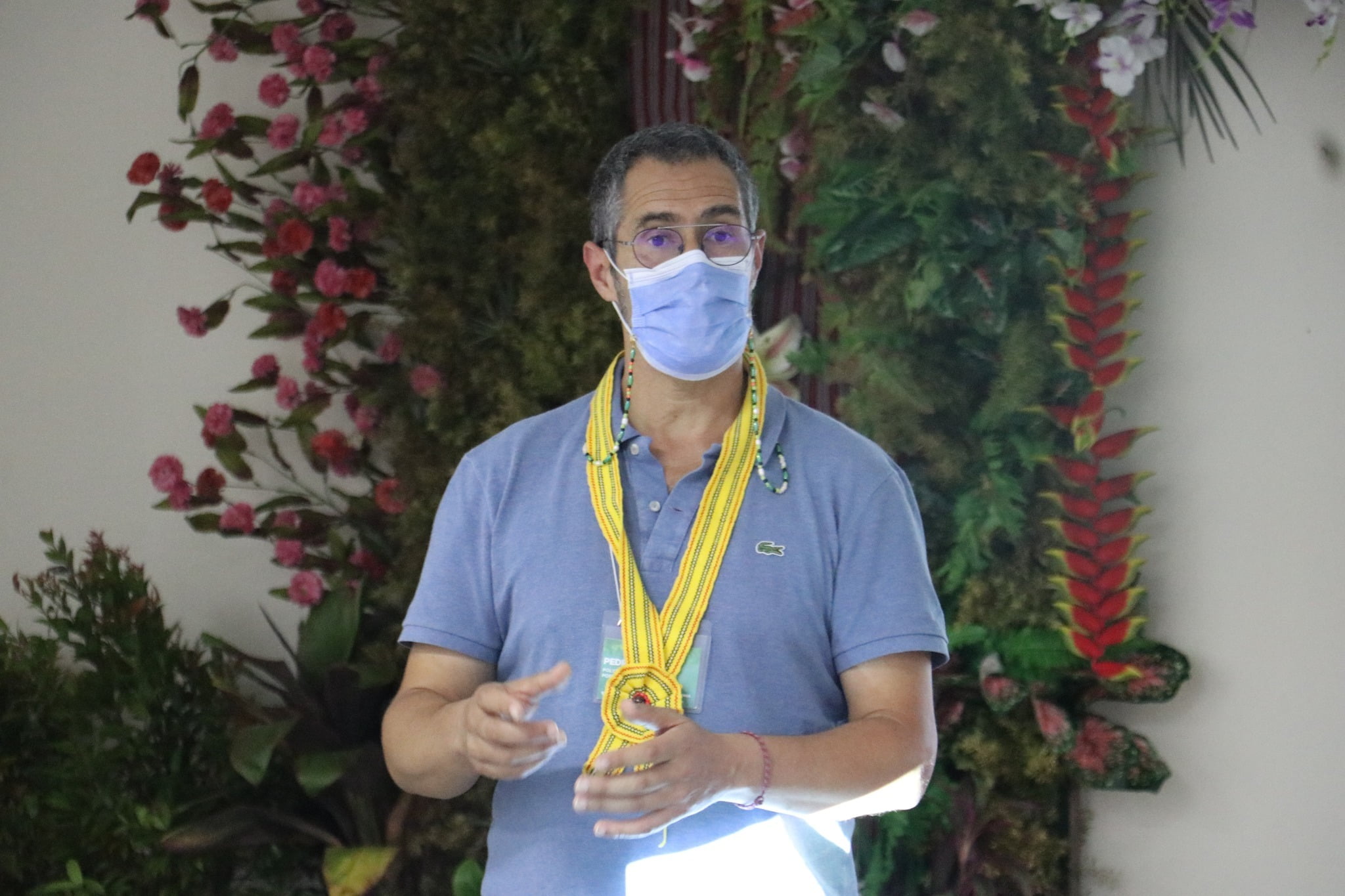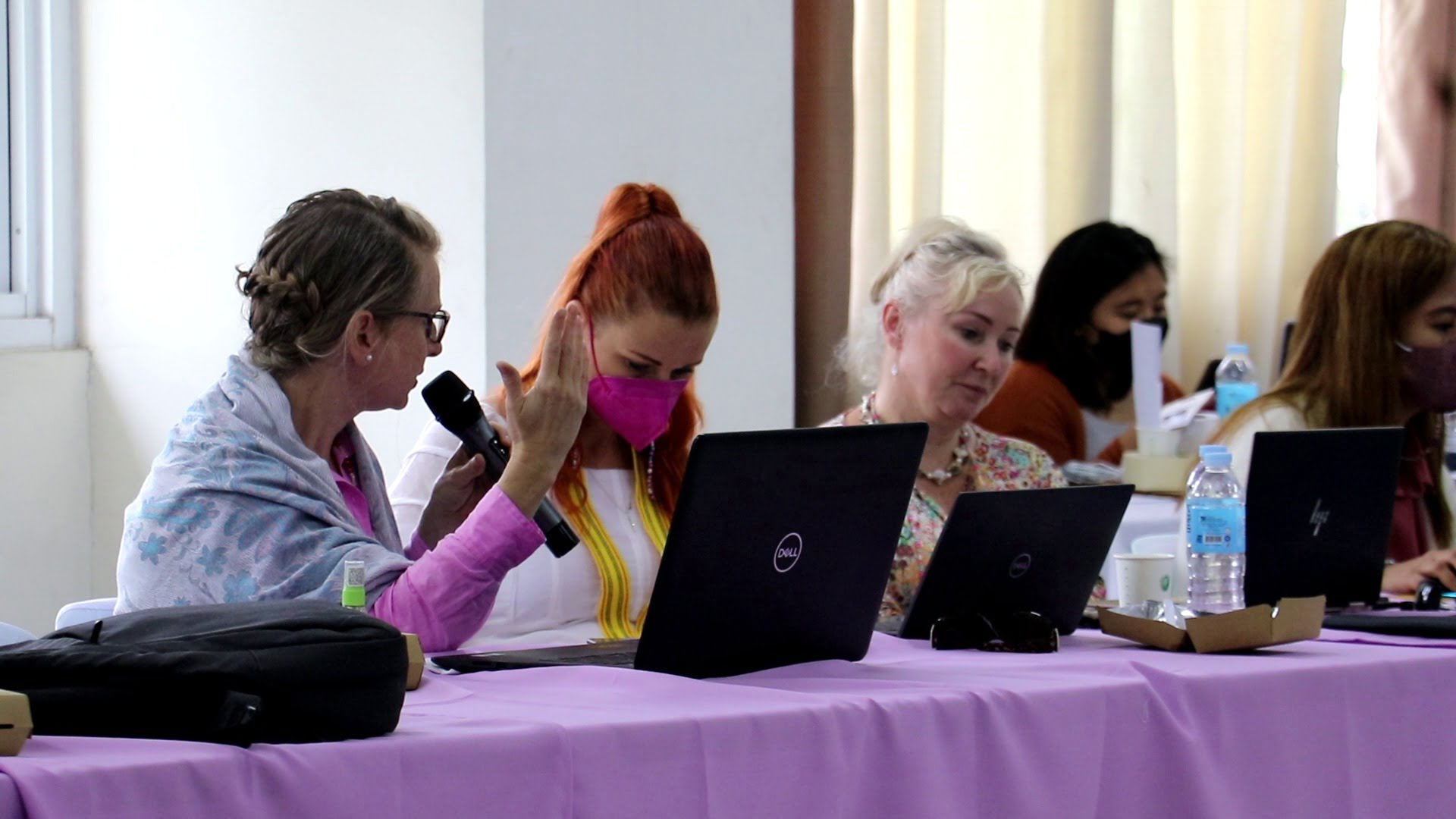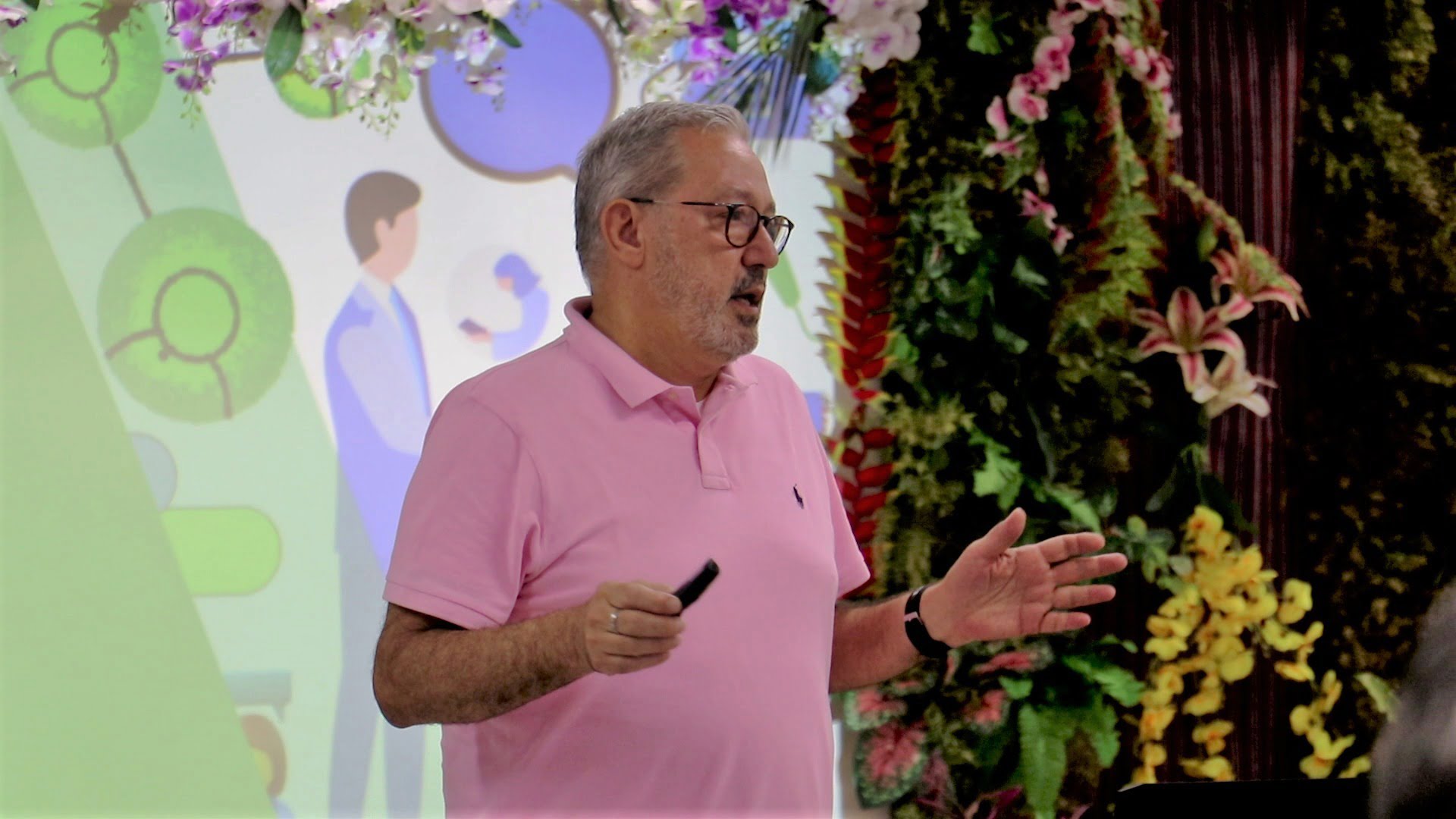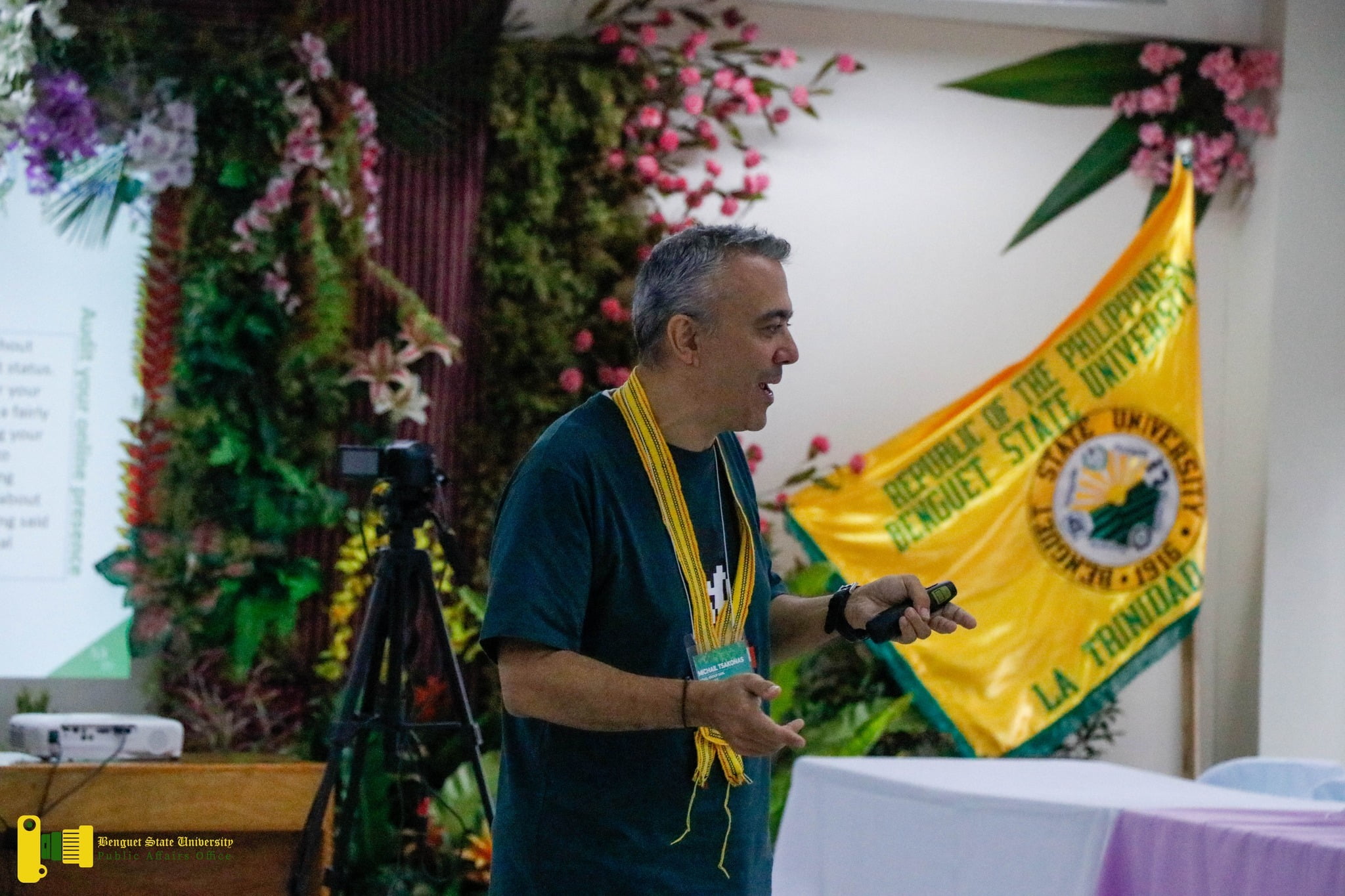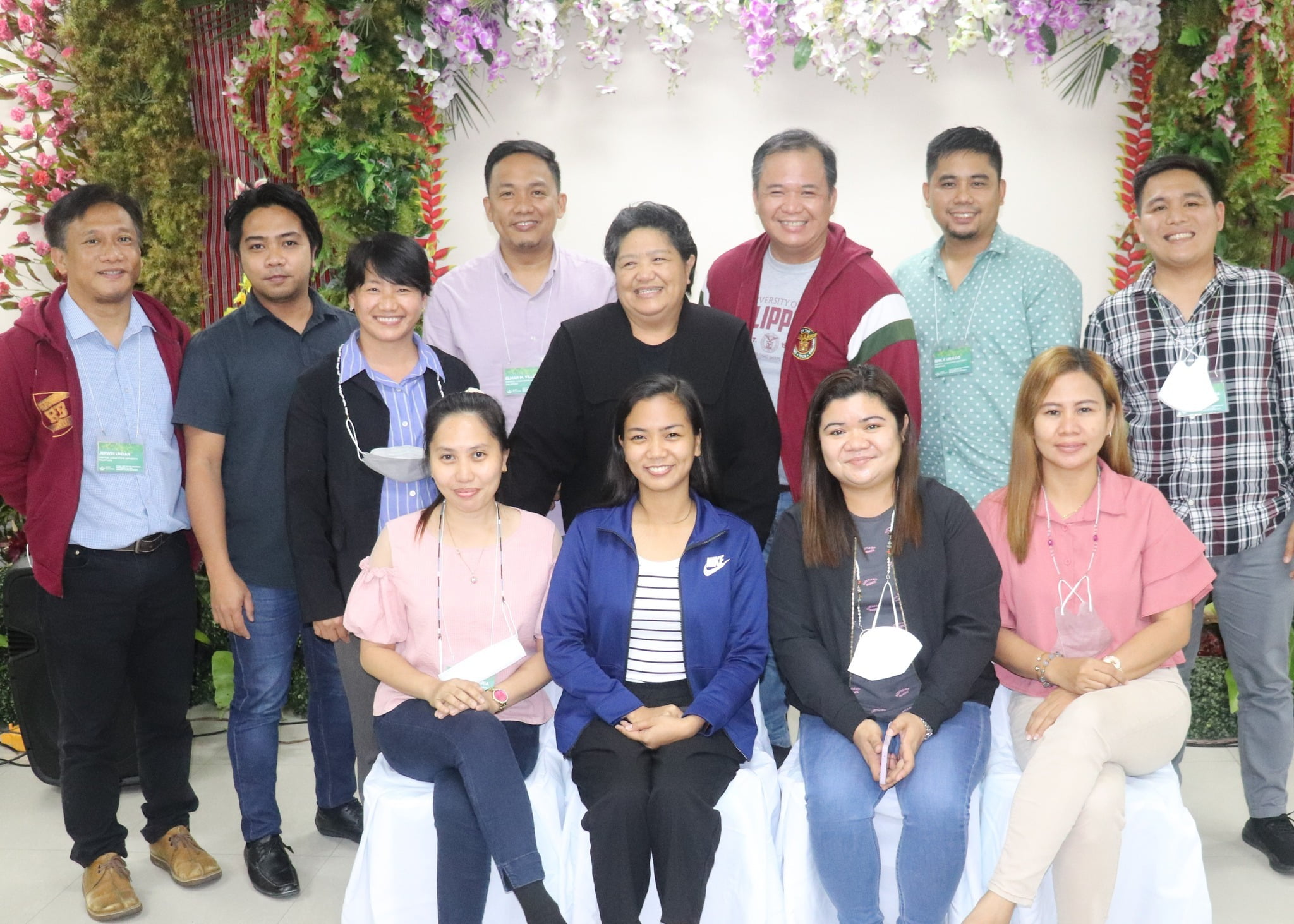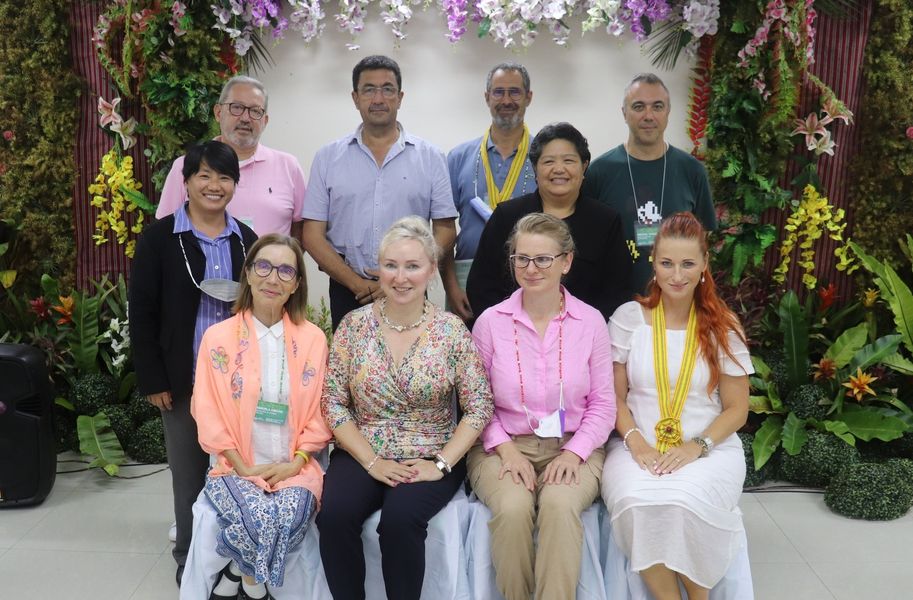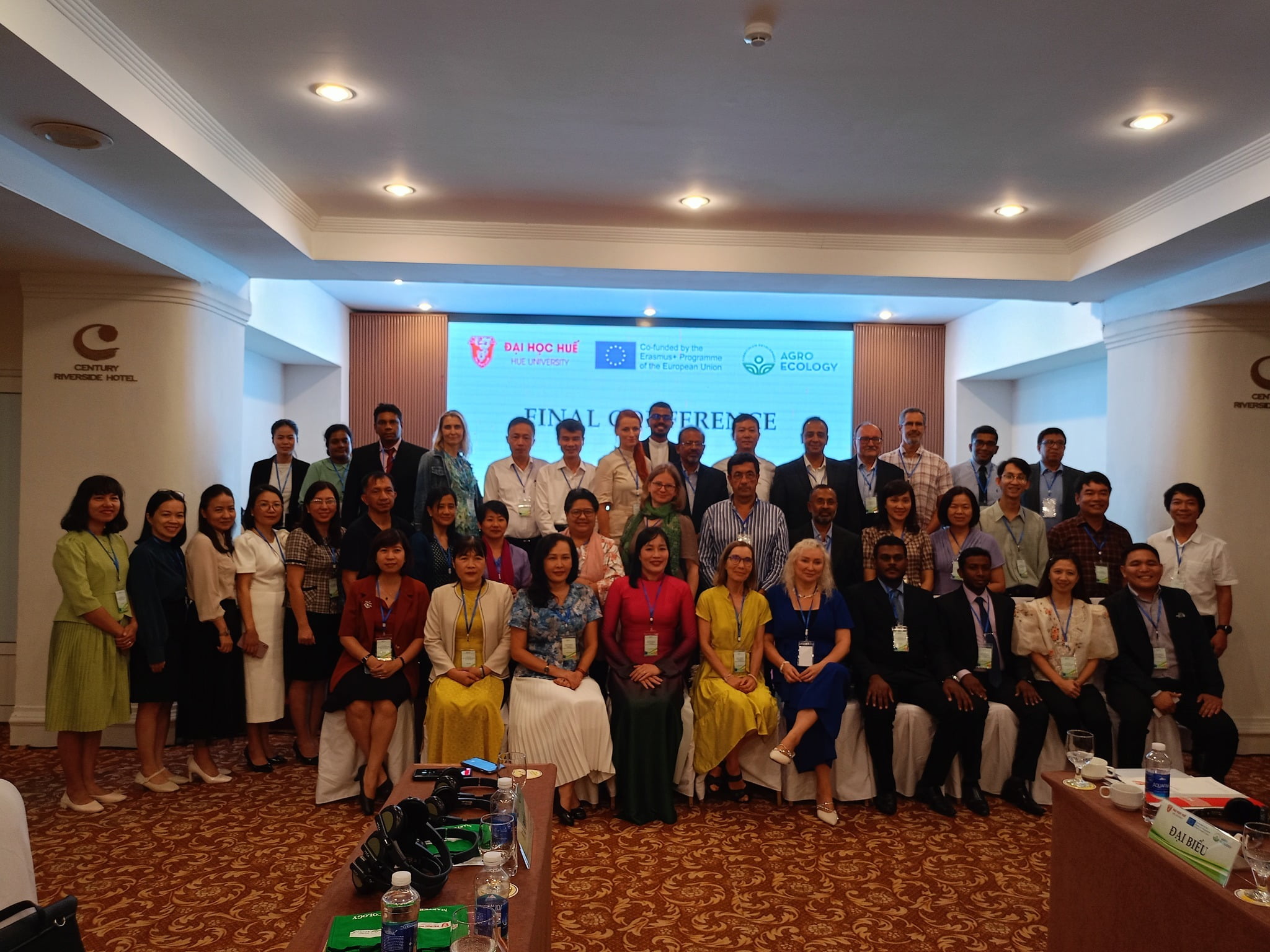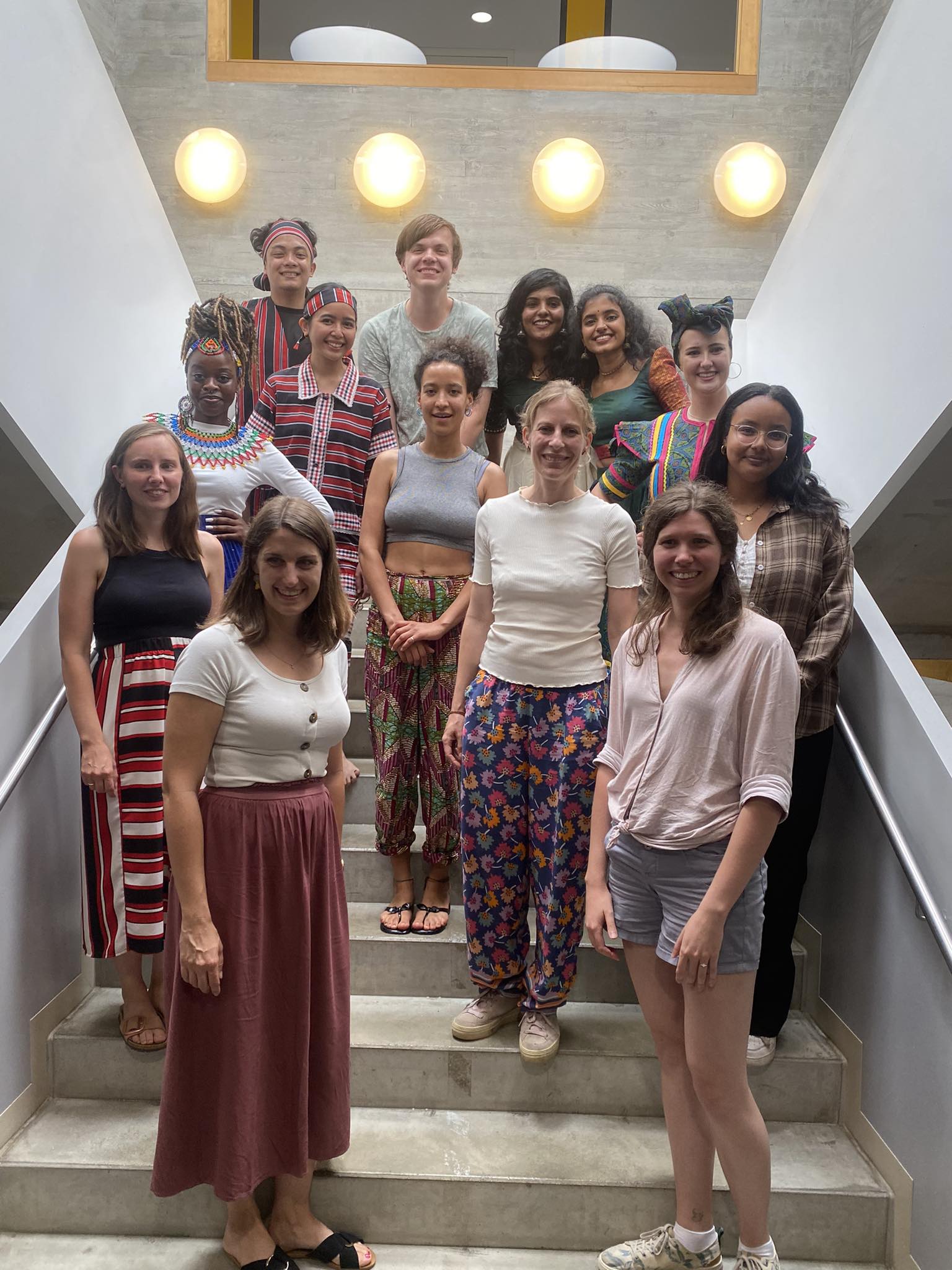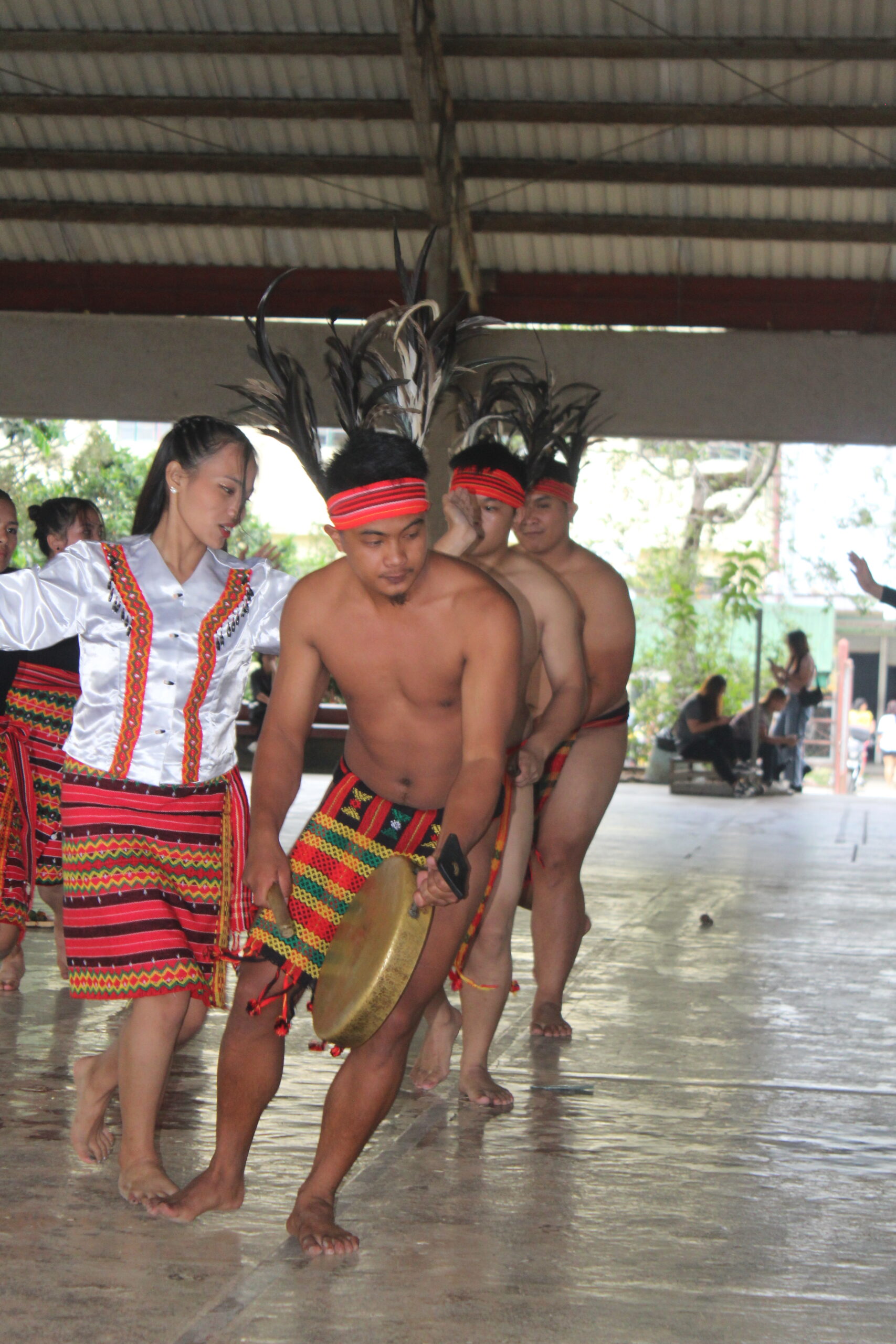𝗗𝗔𝗬 𝟰 | 𝗦𝘁𝘂𝗱𝘆 𝗩𝗶𝘀𝗶𝘁 𝘁𝗼 𝘁𝗵𝗲 𝗣𝗵𝗶𝗹𝗶𝗽𝗽𝗶𝗻𝗲𝘀
On September 8, 2022, the academic and administrative staff, participants, and resource speakers convened in a plenary session at Everlasting Hall, Research and Extension building, for the last day of the Study Visit to the Philippines: Capacity-building training of the Curriculum Development in Agroecology project funded by Erasmus+.
Marios Paraskevopoulos (Paras) & Michalis Tsakonas, resource speakers from Novel Group Sarl (Novel), commenced the training about networking skills and discussed three topics: partnerships and communication, computer-mediated communication, and branding and contextual design. Paras discussed that networking is getting to know the people who can assist in creating your career prospects. On the other hand, partnering relates to actions and arrangements in which both parties agree to cooperate and collaborate to progress their joint and mutual interests. He also added some of the importance and differences of having partners and networks. “Networks open new doors for new opportunities, and it gets support from high-profile individuals while partnering provides opportunities to learn new strategies and get or make your project/institution/organization more popular or known. So, it is important to choose your partner well in projects and linkages,” Paras advised.
Paras cited that the pandemic opened many online networking communities, but most struggle to make meaningful connections. So, Paras suggested that to make your connections expand, one must join in networking events such as conferences or study visits. “Networking events can be physical conferences or online. Setting up physical and online conferences should be planned strategically and carefully. We should also evaluate if the venue is conducive or appropriate or if the participants are familiar with the online platform to be used,” said Paras.
Tsakonas ended the Vocational Educational Training with his branding and contextual design lecture. He emphasized that quality and personal excellence are crucial elements of branding. “Some things that can impact personal brands are using an email signature, accounts on LinkedIn, business cards, emails, voice messages, and any presentation or visual aids presented or handed to anyone. Choose wisely on social platforms to mainstream your branding, and focus on what is important to your organization rather than what is most popular,” said Tsakonas.
The morning plenary session continued with a presentation from Rui Amaro of Polytechnic of Coimbra featuring the Analysis of an Agroforestry farm of 1,305ha with three main objectives; type of forest, trees, animal production, and pastures (Irrigated & Non-Irrigated Land).
Further, Janet Pablo, BSU project leader, facilitated the networking activity prepared for the last day of the Study Visit to the Philippines. This activity allows the European partners and Benguet State University to exchange information in areas of agriculture, forestry, environmental science, statistics, and the opportunities for the MSAE program. This engagement involves research directors, department chairpersons, faculty of various colleges, and heads from the admin sector of the university.
Moreover, the afternoon plenary session commenced right after the networking engagement. The afternoon session focused on the remaining two replication training and the presentation of the Virtual Learning Environment platform.
Manuela Abelho of Polytechnic of Coimbra started the afternoon session with her lecture on Soil Microbial Biomass as an Indicator of Soil Health. “The increasing demand for food led to intensive agriculture, which resulted in using fertilizers and pesticides. With these problems, organic agriculture is viewed as a solution. Also, the effects of microorganisms and microbial biomass as an indicator of soil health and basis for productivity seems to be the best practice in organic agriculture,” explained Abelho.
The replication training was completed by Pedro Moreira of Polytechnic of Coimbra in his lecture on Circular Economy in Agroecosystems. Moreira stated that the ‘circular economy in agriculture production and agricultural commodities reduces as much as possible the external inputs, closing nutrient loops, and reducing negative discharges to the environment for both waste and emissions. “It is like transforming a/the waste into a solution to the system,” Moreira added. Further, Moreira emphasized organic agriculture as a tool for a circular economy and cited their Project Divulgar-Bio as an example. “This project created publications- manuals for organic agriculture with the help of partners from various universities and directly involving farmers and organizations,” Moreira supplemented.
As a pre-ending capacity-building activity, Novel presented the Virtual Learning Environment (VLE) platform via Zoom to the consortium and the participants. Nikolaos Politopoulos virtually walked through the participants and partners to the VLE platform. Specifically, Politopoulos presented how to: create an account, access the course, and how to use the platform’s features. He also presented valuable references to familiarize the platform. “The platform and the courses are already accessible; the sooner you create an account, the sooner we can assist you if you have concerns using the platform,” said Politopoulos.
The Study Visit to the Philippines: Capacity Building of Academic and Administrative Staff ended with a sharing of takeaways from the European partners and the participants from Benguet State University and Central Luzon State University. The Director of the International Relations Office, Maria Luz D. Fang-asan, delivered the closing statements of the event.
More information:
